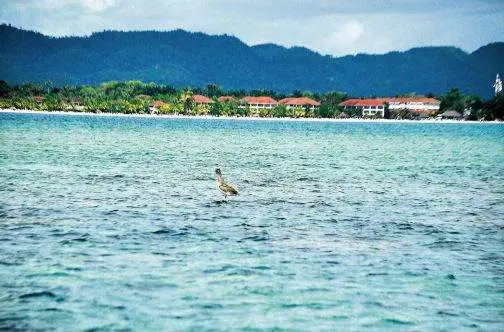
Caricom mulls new int’l agreement for biodiversity
JAMAICA recently played host to government officials as well as scientific and legal experts from across Caricom to discuss the need for an international agreement dedicated to systematic ocean conservation and the sustainable use of areas beyond the jurisdiction of national governments.
Already, there are institutions and agreements governing the high seas and the deep seabed located beyond the limits of States’ continental shelves — called Areas Beyond National Jurisdiction (ABNJ) — but they do not specifically regulate the conservation of marine biodiversity. They include the International Maritime Organisation, which regulates shipping; the global network of regional fisheries management organisations, which govern the fishing industry; and the International Seabed Authority, which regulates deep sea mining from its headquarters on Port Royal Street in Kingston.
But as the international scientific community reasons it, “a new implementing agreement under the United Nations Convention on the Law of the Sea (UNCLOS) is needed to implement and update the environmental protection and conservation provisions of the Convention in order to address new threats and intensifying uses which are undermining the health, productivity and resilience of the oceans in general and marine biodiversity beyond national jurisdiction, in particular”.
At the Jamaica meeting, deputy permanent representative of Trinidad and Tobago to the United Nations Ambassador Eden Charles said the agreement would reduce existing governance gaps by providing a comprehensive legal and institutional framework for biodiversity beyond national jurisdiction (BBNJ).
“It also has the potential to strengthen the Convention at a time when a large majority of members of the international community accept its provisions as part of customary international law,” he said.
Charles added that the new agreement would provide legal certainty, establish capacity building and encourage freedom of the high seas.
Shorna-Kay Richards, deputy permanent representative of the Permanent Mission of Jamaica to the United Nations said: “They need to know what’s there before they start to mine. So, we have a legal regime for non-living resources but we have a gap, and the gap is that we have no legal regime for living resources and the new implementing agreement will address that and take into consideration how we go about mining and sharing those resources.”
She said the Caribbean needs to have an active voice and policymakers need to be aware of the negotiation on the implementing agreement and leverage the technical expertise of the region.
Richards added that there needs to be an integration of ocean governance as economic divisions of the seas aren’t doing the region any good.
Minister of State in the Ministry of Foreign Affairs and Foreign Trade Arnaldo Brown, who is also chairman for the National Council on Ocean and Coastal Zone Management, said the international community has recognised that the job of ensuring equitable distribution, sustainable use and development of the resources of the deep sea is not complete.
“There is an urgent need to address ocean governance in a more holistic manner, to ensure that efforts to protect, conserve and share marine biological resources are given as much credence as efforts to secure the benefits of the non-living resources of the deep sea,” he said.
The council chairman added that the elements to be considered, which include conservation, sustainable use, the sharing of benefits, capacity building, and transfer of technology, needed to be addressed as a package — one which was agreed on by the Working Group in 2011 and subsequently endorsed by the UN General Assembly to be used as the building block for the scope of a new agreement.
Brown further stated that the new implementing agreement under UNCLOS must define its relationship with existing international agreements as no provisions should be made that would diminish the role of the International Seabed Authority in addressing issues relating to the Area, for example.
Under UNCLOS, States have the right to use the ocean and in turn, they have a duty to conserve it. But because there is no global framework setting out an all-encompassing management mechanism and rules for biodiversity, the high seas — which constitute almost two-thirds of the earth’s global ocean and nearly half of its overall surface — remain unprotected from threats such as pollution, overfishing, destructive fishing, noise, and new and emerging issues such as the effects of climate change and ocean acidification.
According to the High Seas Alliance, which hosted the workshop in tandem with The Pew Charitable Trusts and the Jamaican Government, a new agreement that includes access to and benefit sharing of marine genetic resources in the ABNJ could have significant benefits for developing countries as well as the developed world.
Such benefits include marine genetic resources that could contribute to medical breakthroughs such as anti-cancer drugs.
In 2011, the United Nations General Assembly endorsed a recommendation to convene a process to ensure that the legal framework under UNCLOS effectively addressed the conservation and sustainable use of marine biodiversity in the ABNJ. In June, 2012 at the Conference on Sustainable Development, otherwise known as the Rio+20 Summit, governments were urged to “address on an urgent basis the issue of conservation and sustainable use of marine biodiversity”.
Participating countries decided to start a process of intercessional meetings to discuss recommendations on the scope, parameters and feasibility of a new international instrument under UNCLOS. The meetings, which should end in January 2015, are expected to lead to a decision to launch the negotiations for a new implementing agreement.

























